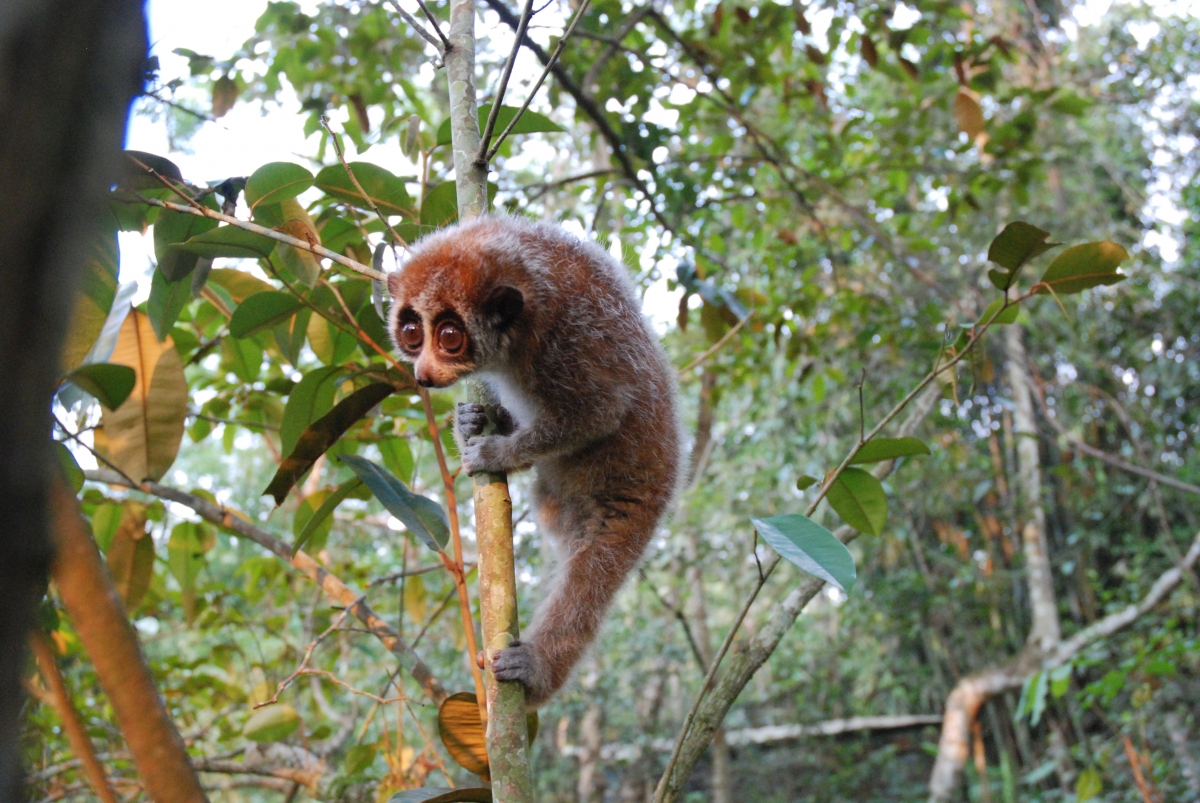Experts discover pygmy slow loris is first primate outside of Madagascar to hibernate
Pygmy slow lorises have been found to hibernate, making it the first primate outside of Madagascar to exhibit such behaviour. The slow lorises were found to hibernate for bouts of up to 63 hours between mid-December and mid-February.
Hibernation is a state of energy conservation, during which the body temperature and metabolism are slowed for periods longer than 24 hours. Any period shorter than this is known as daily torpor.
Publishing their findings in Scientific Reports, the team from the University of Veterinary Medicine in Vienna, Austria, monitored the core body temperatures of five pygmy slow lorises over autumn, winter and spring. They found both male and female slow lorises entered a period of hibernation during the midwinter period.
Before this, the only known case of a primate hibernating was found in three species of lemur found on Madagascar and it was thought the trait was isolated to this island. Pygmy slow lorises, however, are found in forests of Vietnam, Cambodia, Laos and China.
Pygmy slow lorises are nocturnal, tree-dwelling wet-nosed primates that grow to around 20cm with a body mass of 400g. The authors believe slow loris hibernation could be an adaptation to seasonal changes in food ability during winter, as well as a decrease in ambient temperature.
First author Thomas Ruf said: "In Vietnam, where we studied the animals, there are pronounced seasons. Ambient temperature can drop to 5C. This is exactly when the probability of animals entering a hibernation episode was highest.
"There had been anecdotal observations of pygmy lorises that remained inactive for several days. Occasionally animals were encountered that felt cool to the touch. However, we discovered only now that the lorises actually hibernate."
The team also says the find throws up questions about the evolution of hibernation among primates. Previously it had been assumed the environmental conditions on Madagascar were crucial for its occurrence, but the pygmy slow loris shows this is not the case.
"Possibly, hibernation as an overwintering strategy was lost in other primates in Africa, Asia, and the Americas," Ruf said. "However, perhaps hibernation is also used by further primate species, which have not been studied yet."
Concluding, the authors wrote: "In summary, this study shows that hibernation in primates is not restricted to species inhabiting Madagascar. Thus, there are no specific climatic conditions or evolutionary histories that have limited the occurrence of primate hibernation to this island. This finding opens the door for the search for hibernation in further primates living in seasonal habitats."




© Copyright IBTimes 2025. All rights reserved.






















